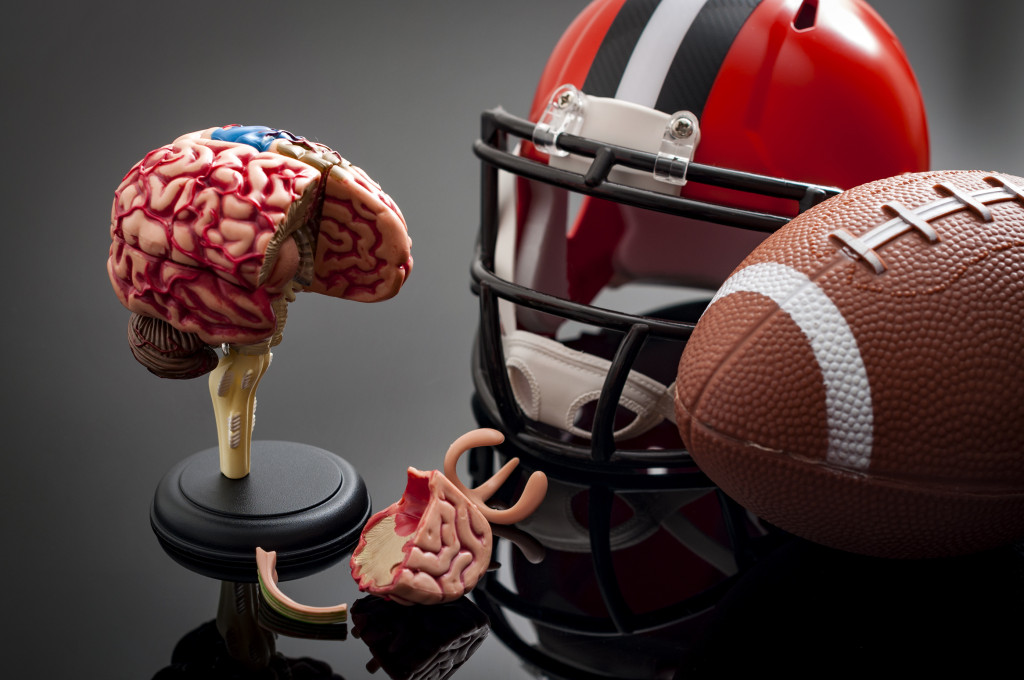In late January, state Rep. Carol Sente introduced the Dave Duerson Act. The Act, named for the former Chicago Bear who committed suicide in 2011, would ban tackle football for children younger than 12 years old. The Act is a response to the increasing proliferation of reports of chronic traumatic encephalopathy, CTE, in football athletes.
CTE is a progressive, irreversible disease of the brain which is found in people who have a history of repeated hits to head. These can be hits that cause concussion, or may be subconcussive hits, events that do not cause symptoms. Symptoms of CTE include memory loss, confusion, impaired judgment, loss of impulse control, depression, the inclination to suicide, Parkinson’s diseases and progressive dementia.
At Alzein Pediatrics, the health of your child’s brain is as important to us as it is to you. We’re here to answer your questions about concussions, football safety and CTE.
What is a concussion?
A concussion is a jolting injury to the brain. That movement within the skull case can cause bruising and damage to blood vessels and nerves. Your child may “see stars”, have their vision affected or lose their sense of balance or equilibrium, even for as short a time as a few minutes. Your child does NOT have to lose consciousness to have a concussion.
How do I know if my child has a concussion after the impact or injury?
Call our office immediately, or bring your child to Urgent Care if she displays any of these signs:
• Confusion, being dazed, loss of balance, even for just a few minutes
• Nausea or vomiting
• Headache or dizziness
• Sluggishness, clumsiness, sleepiness
• Slurred speech
• Blurred or altered vision
• Sensitivity to light or to noise
• Ringing or buzzing in ears
• Behavior or personality changes
- Difficulty concentrating or memory loss
Your child should have a CAT scan to determine if there is any bleeding in the brain that will require intervention or treatment.
Can my child get a concussion without playing sports?
Yes. Concussions in children are more common than in adults, even without involvement in high impact sports. A fall, bump or impact to the head can cause concussion.
Why are concussions dangerous?
At worst, a concussion can cause bleeding in the brain, damaging both physical and intellectual functioning permanently. Without proper recovery from the mildest of concussions, your child is at a much higher risk for another concussion. Repeated concussions or repeated subconcussive events have devastating effects on your child’s brain, and have been shown to cause CTE.
Why is tackle football a problem?
Unfortunately, no matter how good helmet technology gets, it’s still not effective in preventing concussions. When a player gets hit, his brain jars, jolts and bumps within his own skull. No helmet – or technology – in the world can prevent the interior impact of brain against bone. With every hit your child takes, whether it causes a concussion or not, his brain sustains an injury.
Why is youth football a problem?
The brain hits an important development phase between the ages of 10 and 12, and the newest data shows a strong association that repeated hits – not just diagnosed concussions – to the head before the age of 12 will cause significant problems. The study shows a 3-fold increased risk of behavioral problems, apathy, elevated depression and loss in executive functioning – even if the subject stopped playing football after high school.
What are the experts recommending?
At this point, researchers are still collecting and validating data, but the science strongly indicates that repeated hits before the age of 12 leads to both short- and long-term neurological consequences.
Do you have questions about sports injuries and your child’s safety? Call our office at 708-424-7600 or email us. We are always happy to help you make the best decision for your family’s health!



